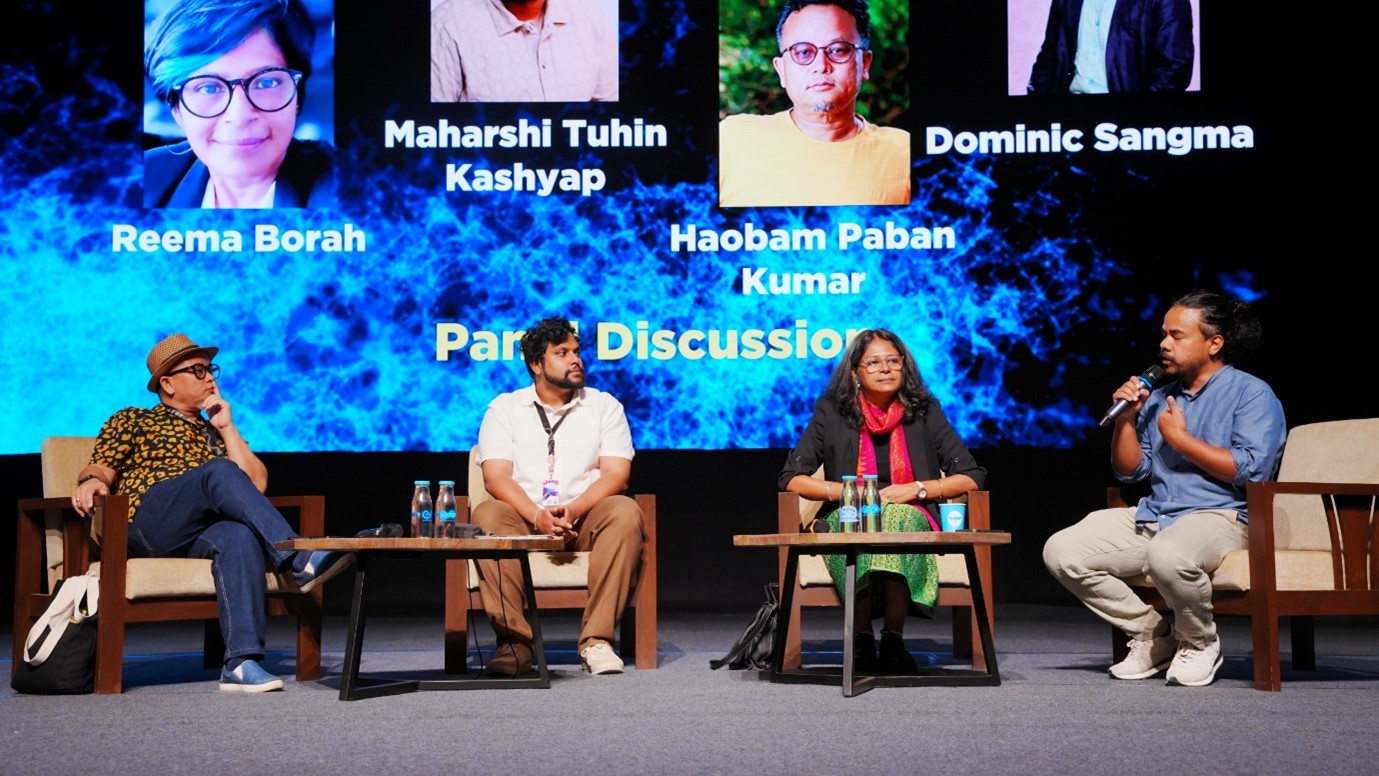A panel discussion on ‘New North-East Cinema and Film Schools’ was held at the Kala Academy Auditorium on the 8th day of the 56th International Film Festival of India (IFFI), Goa 2025. The session explored the transformative role of film schools in shaping the region’s filmmakers and storytelling traditions, with leading voices from the North-East sharing personal journeys, experiences, and insights on the evolving cinematic landscape.
The discussion was moderated by Dominic Sangma and featured eminent filmmakers including Manipur’s Haobam Paban Kumar and Assamese filmmakers Reema Borah and Maharshi Tuhin Kashyap.
Haobam Paban Kumar, a veteran filmmaker from Manipur, reflected on the challenges of formal film education in the 1990s, when only two major institutions—FTII Pune and SRFTI Kolkata—were accessible. Recounting his six-year journey to gain admission to SRFTI, during which he apprenticed under filmmaker Aribam Shyam Sharma, Kumar emphasized how rigorous training helped him refine his craft and understand the nuances of storytelling. “The struggle for recognition continues, shaping the cinema we create,” he said, noting that North-East filmmakers still seek platforms to showcase their work.
Maharshi Tuhin Kashyap spoke about how his time at SRFTI reshaped his vision. Initially drawn to mainstream Bollywood, he realized the importance of exploring authentic stories rooted in Assam. “True stories come from home, and understanding it is what shapes a filmmaker’s voice,” he said, stressing that film education taught him to observe deeply, reflect critically, and embrace his cultural heritage as creative inspiration.
Reema Borah highlighted the underrepresentation of North-East cinema in formal curricula despite the region’s rich cinematic history, from Ishanou to Ganga Siloni Pakhi, and pioneering Assamese films dating back to 1935. Praising the establishment of a new film institute in Arunachal Pradesh, she said it was a vital step toward bringing North-East languages, traditions, and narratives to broader audiences. “North-East cinema has a rich history that deserves to be seen and heard on national and global screens,” Borah noted.
Moderator Dominic Sangma framed the discussion within the broader context of storytelling and education. Drawing on his roots in oral storytelling, he emphasized that exposure to global cinema expanded his perception of narrative structures. “The best stories come from your own land. Film school teaches you how to tell them,” he said, highlighting the role of education in equipping filmmakers with the technical skills, theoretical grounding, and confidence to bring stories to the screen effectively.
The session concluded with a shared acknowledgment of the indispensable role of film schools in nurturing talent, preserving cultural identity, and empowering North-East filmmakers to create cinema that resonates locally and globally. The discussion also underscored the need for continued investment in infrastructure, mentorship, and platforms to amplify the voices of North-East storytellers.














